The intricate world of avian behavior never ceases to captivate observers and researchers alike. Among the myriad mysteries that ornithologists seek to unravel, the phenomenon of birds abandoning their nests stands as an enigma of profound significance.
Nests represent the culmination of careful construction and nurturing, serving as secure havens for new life.
However, the inexplicable act of abandonment introduces a fascinating twist to this narrative. The reasons behind such behavior are multi-faceted and often intertwined with the delicate balance of survival strategies and environmental dynamics.
This exploration delves into why do birds abandon their nests to forsake their nests, shedding light on the complex interplay of instinct, adversity, and adaptation.
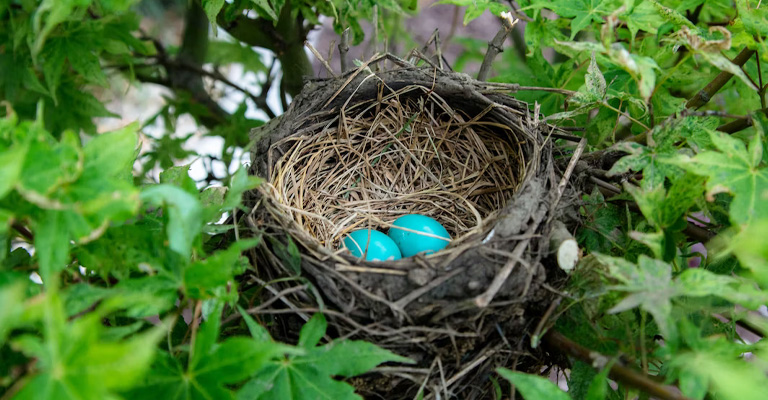
Why Do Birds Abandon Their Nests?
Birds are amazing creatures that can build nests to lay their eggs and raise their young. However, sometimes they may abandon their nests for various reasons.
Here are nine possible reasons why birds abandon their nests:
Mating Season
The first reason birds abandon their nests is due to the mating season. When birds are trying to mate, they are focused on finding a partner and building a nest, taking up a lot of time and energy.
However, if they fail to attract a mate or lose their mate to a rival, they may abandon their nest and try again elsewhere.
Predation
The second reason birds abandon their nests is because of predation. Birds have many natural enemies, such as cats, snakes, foxes, raccoons, and hawks, that may attack their nests and eat their eggs or young.
If a bird senses that its nest is under threat, it may flee and leave the nest behind. Sometimes predators may remove the eggs or young without damaging the nest, making it hard to detect if the nest was raided.
Disturbance
The third reason birds abandon their nests is because of disturbance. Birds may be sensitive to human activity, noise, or other environmental factors that disturb their nesting site.
If a bird feels that its nest is not safe or comfortable, it may abandon it and look for a more suitable location.
Some birds may also intentionally stay away from the nest for long periods before incubation so that they don’t draw attention to the nest location.
Nonviable Eggs
The fourth reason birds abandon their nests is because of nonviable eggs. Sometimes birds may lay eggs that are infertile, damaged, or affected by environmental conditions, such as extreme heat or cold.
If a bird realizes that its eggs are not going to hatch, it may abandon the nest and try again later.
Parental Death
The fifth reason birds abandon their nests is because of parental death. Sometimes one or both of the parent birds may die due to predation, disease, injury, or old age.
If one parent dies, the remaining one may try to take over the nest duties, but in some cases, it may not be able to handle the workload alone and give up the brood. If both parents die, the nest is obviously abandoned.
Parasitism
The sixth reason birds abandon their nests is because of parasitism. Some birds, such as cowbirds and cuckoos, are known as brood parasites, meaning that they lay their eggs in the nests of other birds and let them raise their young.
If a bird detects that its nest has been parasitized by another bird, it may reject the foreign eggs or abandon the nest altogether.
Competition
The seventh reason birds abandon their nests is because of competition. Birds may face competition from other birds of the same or different species for nesting sites, resources, or mates.
If a bird is outcompeted by another bird for its nest, it may lose its territory and have to find another place to nest.
Migration
The eighth reason birds abandon their nests is because of migration. Some birds are migratory, meaning that they travel long distances between different regions depending on the season.
If a bird has to migrate before its eggs hatch or its young fledge, it may have no choice but to abandon the nest and follow its instincts.
Human Intervention
The ninth reason birds abandon their nests is because of human intervention. Sometimes humans may interfere with bird nests intentionally or unintentionally, such as by removing them, relocating them, touching them, or taking pictures of them.
This may cause stress or harm to the birds and make them abandon their nests. Humans should always respect bird nests and avoid disturbing them as much as possible.
Which Bird Abandons Their Nests?
There are many reasons why birds may abandon their nests, such as predation, disturbance, nonviable eggs, parental death, parasitism, competition, migration, or human intervention.
However, some birds are more likely to abandon their nests than others, depending on their species, behavior, and nesting habits.
Here are some examples of birds that abandon their nests:
Cuckoos
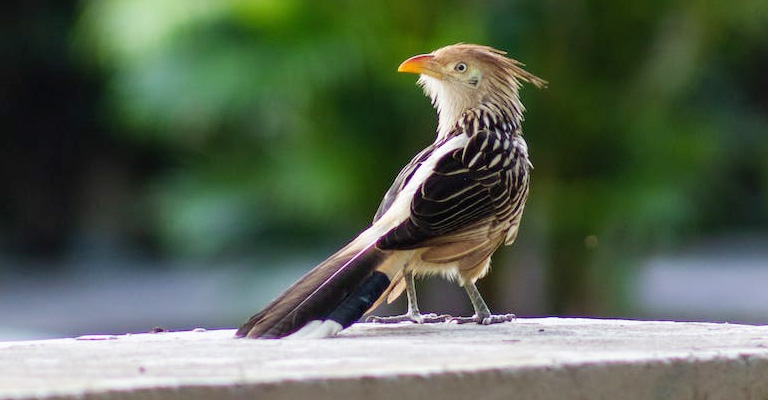
Cuckoos are notorious for being brood parasites, meaning that they lay their eggs in the nests of other birds and let them raise their young.
Cuckoos do not build their own nests, so they abandon their eggs as soon as they lay them in another bird’s nest. Some cuckoos may even remove or damage the host’s eggs to increase the chances of their own offspring’s survival.
Hummingbirds
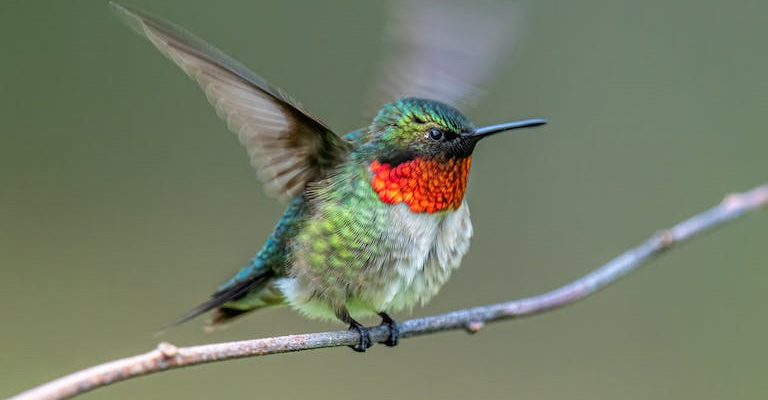
Hummingbirds are very small and have a high metabolism, requiring them to feed frequently on nectar and insects. Hummingbirds build tiny cup-shaped nests that can hold only one or two eggs.
The female hummingbird is solely responsible for incubating the eggs and feeding the young. If the female hummingbird cannot find enough food or faces predation or disturbance, she may abandon her nest and try again later.
Swallows
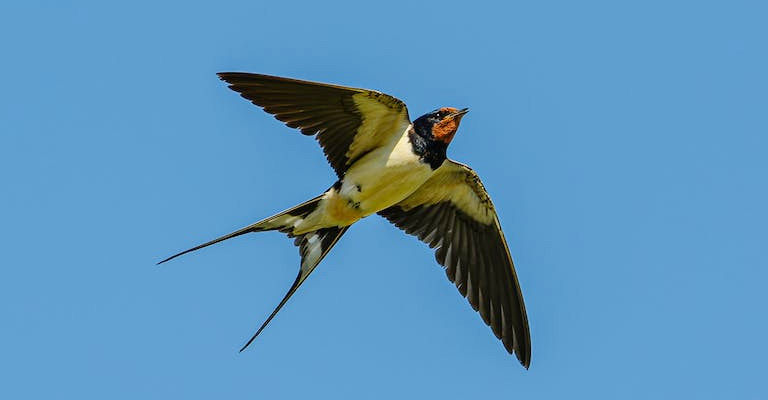
Swallows are migratory birds that travel long distances between their breeding and wintering grounds. Swallows build mud nests in colonies under bridges, eaves, or cliffs.
Swallows may reuse their nests for multiple breeding seasons, but they may also abandon them if they face competition from other swallows or invasive species like house sparrows or starlings.
Swallows may also abandon their nests if they have to migrate before their young are ready to fly.
Blackbirds
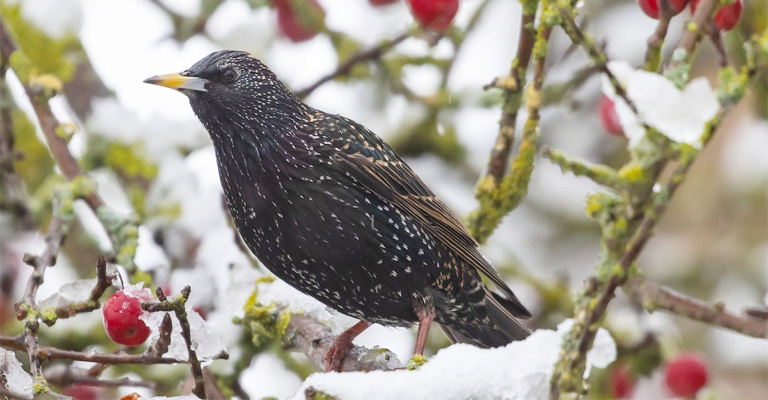
Blackbirds are common songbirds that can be found in a variety of habitats. Blackbirds build cup-shaped nests in trees, shrubs, or grasses.
Blackbirds may abandon their nests if they feel threatened by predators, humans, or other birds. Blackbirds may also abandon their nests if they have finished raising their young and have no further use for the nest.
What Are Some Ways To Prevent Birds From Abandoning Their Nests?
Birds are wonderful creatures that can brighten up our days with their songs and colors.
However, sometimes they may abandon their nests with eggs for various reasons, such as predation, disturbance, nonviable eggs, parental death, parasitism, competition, migration, or human intervention.
This can be sad and harmful for both the birds and the environment. Fortunately, there are some ways to prevent birds from abandoning their nests or at least reduce the chances of it happening.
Here are some of them:
Provide A Safe And Suitable Nesting Site
Birds need a place to build their nests that is sheltered from predators, weather, and disturbance.
You can help them by providing birdhouses, nest boxes, or platforms that are designed for the specific species you want to attract.
You can also plant native trees, shrubs, and flowers that offer natural cover and food sources for the birds. Make sure to clean and maintain the nesting sites regularly to prevent parasites and diseases.
Avoid Disturbing Nesting Birds
If you find a bird nest in your garden or local area, it’s best to leave it alone and observe it from a distance. Getting too close, making loud noises, or touching the nest could scare away the parents or damage the eggs.
You may also leave a scent trail that attracts predators to the nest. If you need to prune a tree or bush that has a nest, wait until the breeding season is over.
Keep Pets Indoors
Cats and dogs are natural predators of birds and may attack their nests if they have access to them. To protect nesting birds, keep your pets indoors or on a leash when they are outside.
You can also put bells on your cat’s collar to warn the birds of its presence. If you have outdoor cats, consider using a cat-proof fence or enclosure to keep them away from bird habitats.
Use Bird Deterrents
Some birds may be unwanted guests in your home or property, especially if they damage your structures or create a mess with their droppings.
In that case, you can use humane bird deterrents to keep them away from your buildings and ledges. Some examples of bird deterrents are spikes, nets, wires, gels, decoys, and repellents.
These devices do not harm the birds but make it difficult or unpleasant for them to land or nest in certain areas.
Support Bird Conservation
One of the best ways to prevent birds from abandoning their nests is to support bird conservation efforts in your community and beyond.
You can join a local birdwatching group, volunteer for a bird survey or monitoring project, donate to a bird rescue or rehabilitation center, or advocate for bird-friendly policies and practices.
By doing so, you can help preserve the natural habitats and resources that birds need to survive and thrive.
FAQ
Birds abandon nests due to various reasons, including predation risk, human disturbance, and environmental changes.
If they feel their nest is compromised, they might choose to abandon it to increase their chances of survival and reproduce in a safer location.
No, not all bird species abandon their nests. Abandonment is more common in species with precocial young (able to fend for themselves) or in situations where the risks outweigh the benefits of staying in the nest.
Yes, human activity can lead to nest abandonment. Frequent disturbances near the nest, loud noises, and proximity to human structures can stress parent birds, causing them to abandon the nest to protect themselves and their young.
Environmental changes like extreme weather, habitat destruction, or shifts in food availability can impact a bird’s ability to successfully raise offspring.
If conditions become unsuitable, birds might abandon their nests to find better resources or a safer environment.
Nest abandonment isn’t always permanent. Some birds might return to the nest if the threat has passed or if conditions improve.
However, once eggs are abandoned for an extended period, they often become nonviable, reducing the chances of successful breeding in that nesting attempt.
Conclusion
In the realm of avian ecology, the question of why birds abandon their nests remains a topic of unending curiosity and scientific inquiry.
The motivations behind this seemingly counterproductive behavior are varied, encompassing factors ranging from predation threats and environmental disturbances to inadequate resources and nesting site quality.
As our understanding deepens through meticulous observation and investigation, it becomes evident that these instances of abandonment are not arbitrary acts but rather responses that reflect a species’ adaptability and resilience.
Every abandoned nest holds a story, a chapter in the complex narrative of survival that avian species weave against the backdrop of an ever-changing natural world.
By comprehending the reasons behind nest abandonment, we gain insight into the delicate equilibrium that shapes the lives of these remarkable creatures, ultimately contributing to our broader appreciation of the intricacies of the natural world.